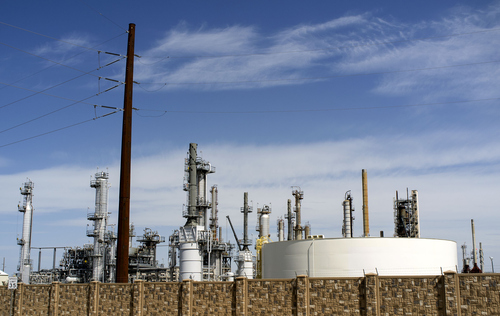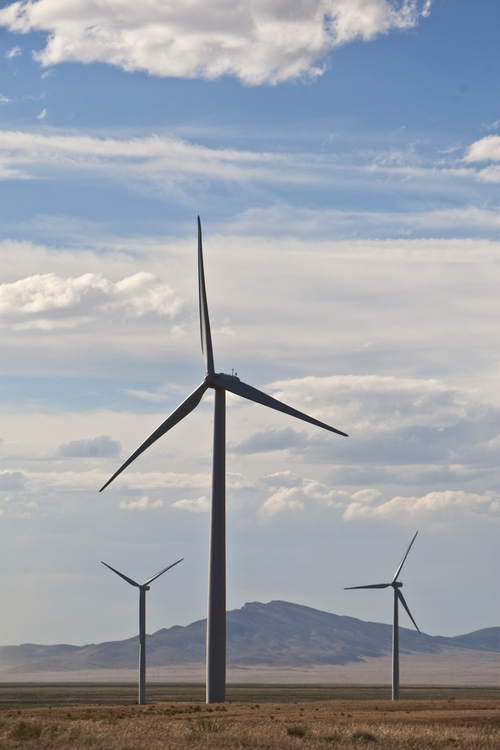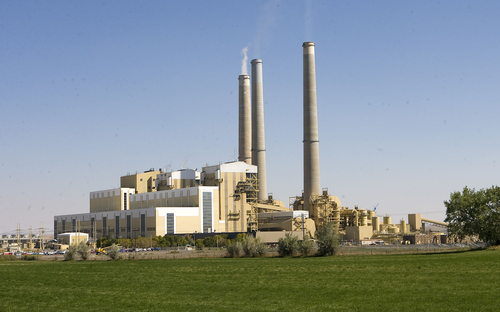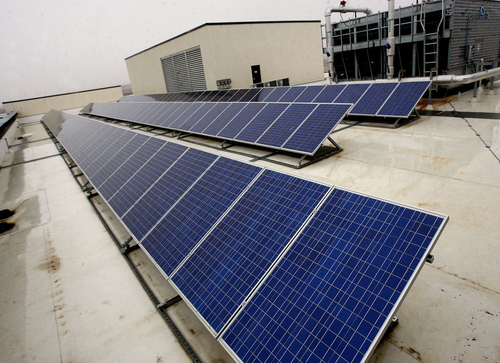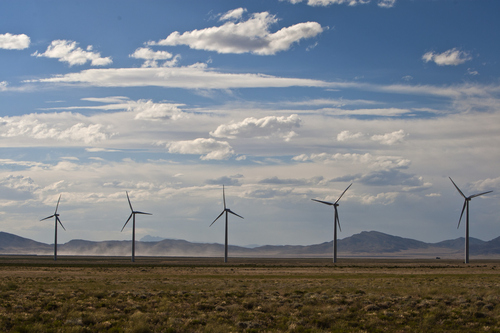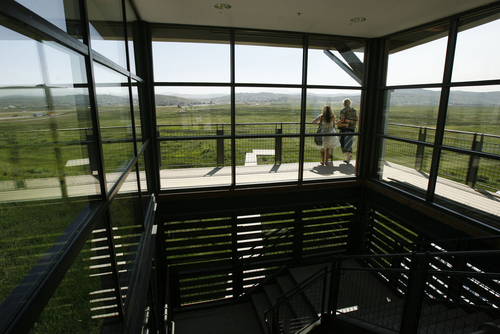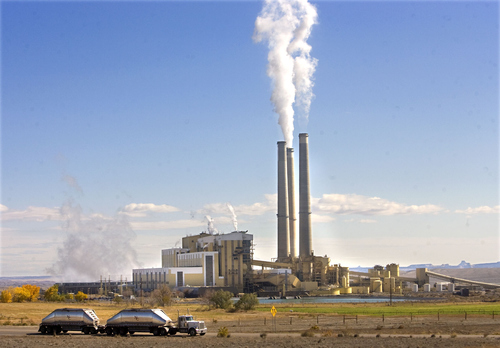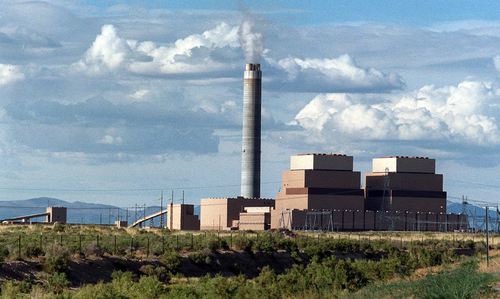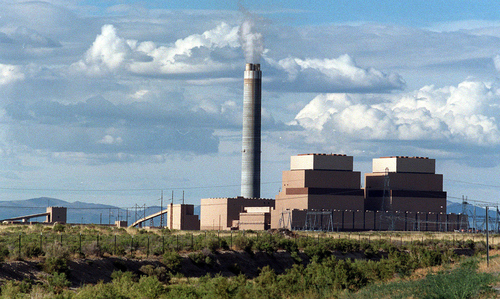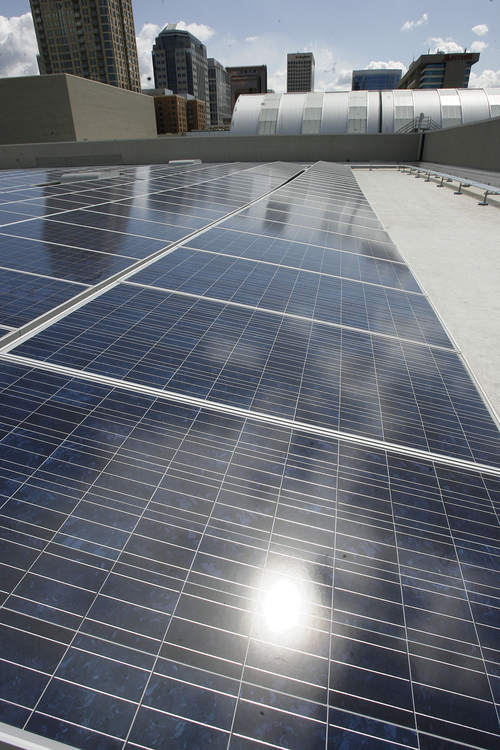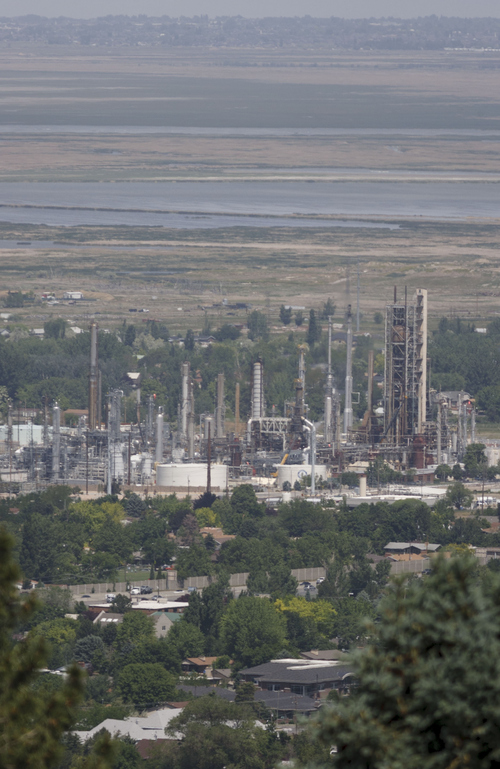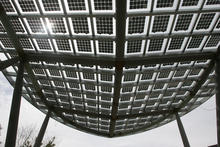This is an archived article that was published on sltrib.com in 2013, and information in the article may be outdated. It is provided only for personal research purposes and may not be reprinted.
President Barack Obama outlined plans Tuesday to slow the pollution blamed for climate change — plans bound to have an impact on Utahns in their homes and on their jobs right away and in communities and wildlands of the rapidly warming Southwest in the decades to come.
Speaking at Georgetown University and dabbing sweat from his brow, Obama took aim at critics who contend that cutting greenhouse gas emissions and improving energy efficiency will cripple American jobs and the economy. He said it is time to stop arguing about environmental changes that scientists agree are already juicing up severe storms, flooding coastal cities and fanning wildfire threat.
"It's not an either/or; it's a both/and," the president said, recalling past successes at reducing smog and acid rain. "We've got to look after our children; we have to look after our future; and we have to grow the economy and create jobs. We can do all of that as long as we don't fear the future; instead we seize it."
His plan includes limiting emissions from coal-fired power plants, stepping up reliance on natural gas as a transitional fuel, expanding solar, wind and other alternative-energy resources and improving energy-efficiency of cars, appliances and buildings — all changes that are likely to be reflected in energy bills. Obama said the changes, which will be done through executive-branch action, are crucial to make the planet sustainable for future generations.
"As a president, as a father, and as an American, I'm here to say we need to act," Obama said. "I refuse to condemn your generation and future generations to a planet that's beyond fixing."
Although the environmental community has criticized the Obama administration for inaction on what many believe is the defining issue of our times, many conservatives denounced the climate change program as disastrous for U.S. jobs and the economy.
Among the critics was Sen. Orrin Hatch, R-Utah. In an interview, he said Obama's proposals go too far and they will put energy costs out of the reach of Americans.
"We don't need to ban coal, which is 50 percent of energy in this country," said the senator, whose office recently met with the Utah state climatologist. "What we need to do is make sure that we clean it up. … We can solve these problems if we just use good economic principles to do so and not just buy off on these radical ideas."
Rep. Chris Stewart, R-Utah, echoed Hatch's concerns about stunting the economy and raising energy prices. And he said the moves would drive industry overseas.
"This is unacceptable," said Stewart, chairman of the House environment subcommittee, who also noted emissions controls through the U.S. Environmental Protection Agency won't do anything to curb rising emissions beyond American borders.
"Our nation is blessed with an abundance of affordable and reliable energy," he said in a statement, "yet the president has chosen to abandon these resources to appease a small group of radical environmentalists with American families footing the bill."
Rep. Rob Bishop, R-Utah, also accused Obama of "capitulating to the whims of special interest group allies" frustrated that Congress won't give them "the carte blanche treatment they think they deserve."
"Disfavor with the speed or manner in which Congress takes up issues is not suitable justification for the president to unilaterally impose sweeping new policies," said Bishop, chairman of House subcommittee on public lands and environmental regulation, "especially ones that will change the course of energy production in this country."
Utah, like other western states, is a big energy producer, with last year's coal and natural gas production valued at $614 million and $1.3 billion, respectively, and jobs totaling more than 16,000 in all phases of energy production.
Gov. Gary Herbert said that no matter what the degree of impact man has on climate, "we all ought to rally around a cleaner environment — both for our children's sake, as well as protecting our health and way of life." He advocated a balanced approach to develop resources in an environmentally sensitive way.
"Those solutions are broad and varied, including the cleaner use of carbon-based fuels," Herbert said in a statement. "Washington would do well to follow Utah's lead and honor the president's stated commitment to work closely with the states."
Meanwhile, a report released last fall by the Southwest Energy Efficiency Project projected that Utahns can save $1.7 billion and protect the environment through stronger energy efficiency programs and avoid the need for three large power plants.
Also, the impacts of warming have begun to be tracked throughout the state and the Southwest.
For instance, the Utah Climate Center has reported that temperatures increased in Utah twice as fast as the global average over the past 40 years.
In addition, researchers warn of more and hotter wildfires, along with fire seasons that are more than two months longer each year than they were 40 years before. And, based on more than a half-century of observations, there is concern that spring snow is melting increasingly earlier, creating a worrisome trend in a state with a $1 billion-a-year skiing industry that depends on the "Greatest Snow on Earth."
Obama's announcement follows news last Friday that Salt Lake City Mayor Ralph Becker won top honors in the 2013 Mayors' Climate Protection Awards, sponsored by the U.S. Conference of Mayors and Wal-Mart, in part because of the city's Net Zero Public Safety Building and Salt Lake Community Solar program.
"In Salt Lake City, we are committed to doing what we can right now to address the climate change impacts that are already being felt at a local level, and will only become more challenging," said Becker upon receiving the award.
"Setting goals for ourselves like constructing net-zero public facilities is one of the many things we can do as a community to help address the mitigation and adaptation necessities that will ensure a vibrant and sustainable future for our city."
HEAL Utah, a Salt Lake City-based environmental group, praised the new White House initiative on Tuesday for helping to clean up Utah's skies along with promoting alternative energy and cutting greenhouse gases. The group also took to task Rocky Mountain Power, which operates three coal-fired power plants in Utah and four gas-fired ones.
"Rocky Mountain Power has failed in any significant way to clean up what is the West's most polluting energy portfolio," says Christopher Thomas, HEAL's executive director. "The damaging health and environmental impacts of coal pollution have never been clearer, yet Rocky Mountain Power continues to bury its head in the sand."
Sarah Wright, director of Utah Clean Energy, welcomed the president's focus on planning for a clean energy future — through efficiency, renewable energy and carbon regulation — that is "in the best interest of all of us."
"This plan puts front-and-center the fact that we do not have to choose between our economy and our health, and quality of life," she said. "In fact, the plan recognizes the immense economic benefits that comes with clean energy, both for our business community and everyday Utahns."
The Colorado-based Sportsmen for Responsible Energy Development praised the idea of balancing protecting the environment with responsible energy development.
"We just want to make sure it's done thoughtfully," said Kate Zimmerman, the National Wildlife Federation's public lands policy director. "We don't want to repeat the mistakes of poorly planned oil and gas development that has threatened some of our most cherished wildlife and wild places."
Twitter: @judyfutah —
President Obama's key points
Increase energy efficiency so cars get more miles per gallon, appliances use less electricity and businesses heat and cool with less power.
Have the U.S. Environmental Protection Agency start setting greenhouse gas limits on new and existing power plants.
Strengthen the nation's position as the world's top natural gas producer to generate low-carbon power during its clean-energy transition.
Expand permitting for renewable energy projects like wind and solar on public lands.


